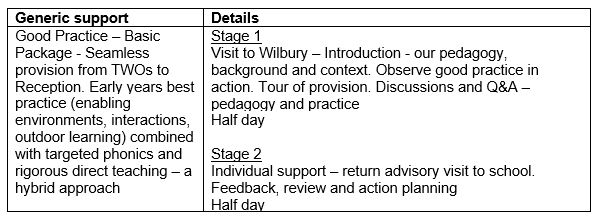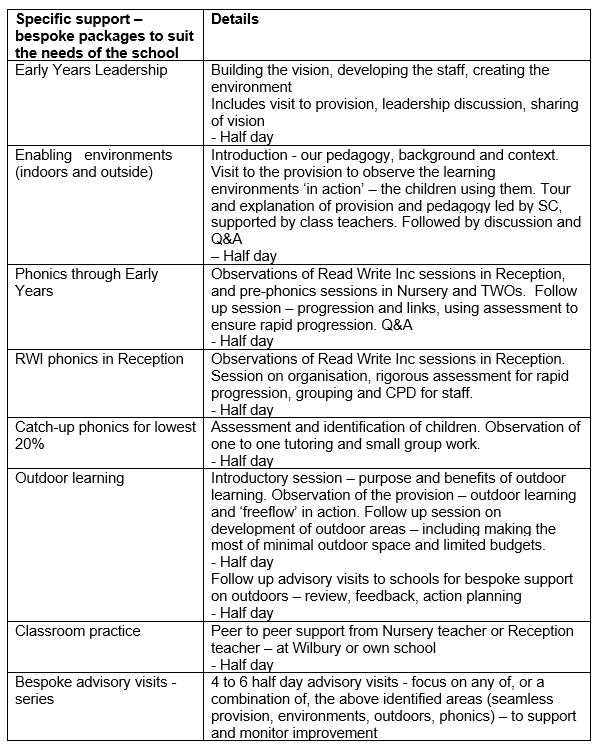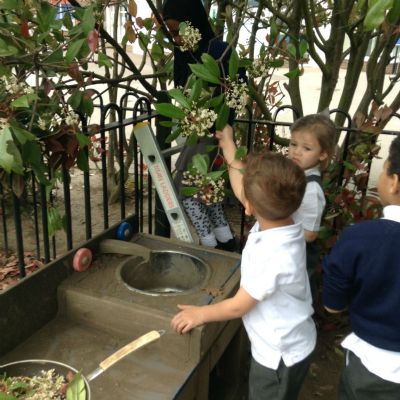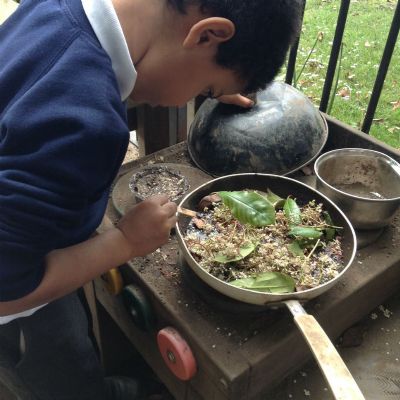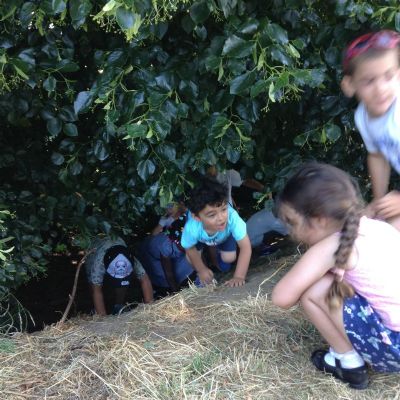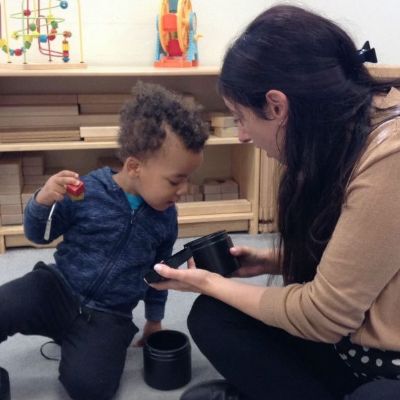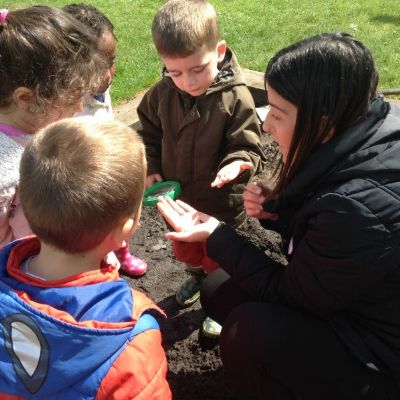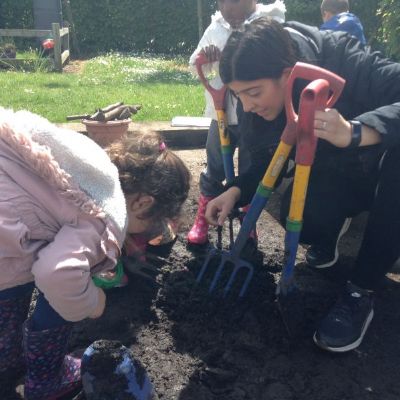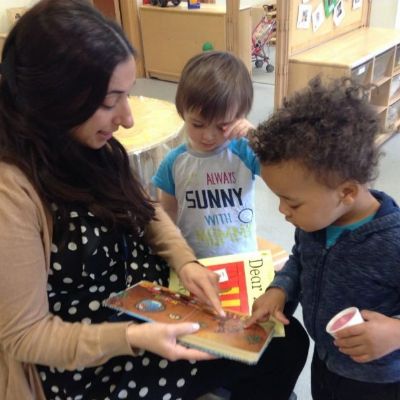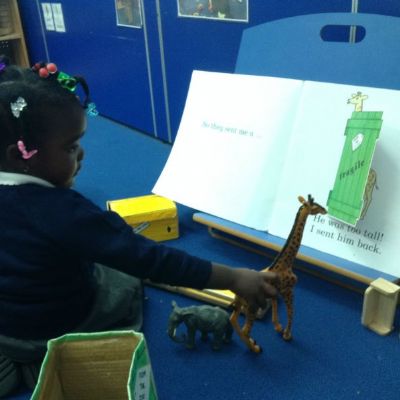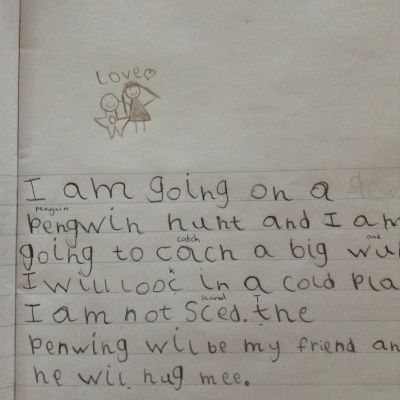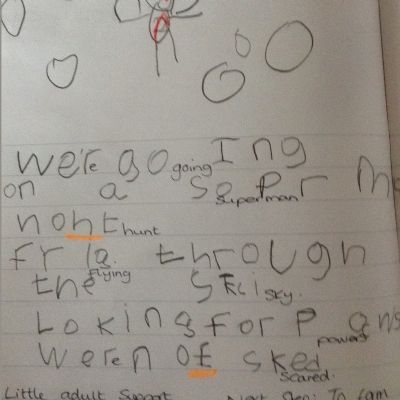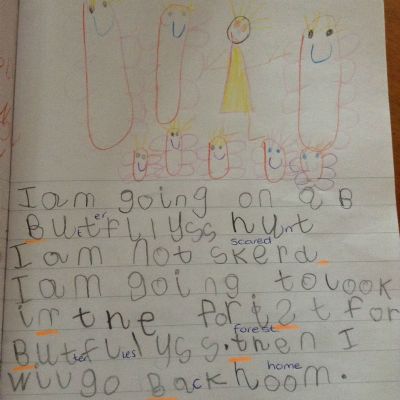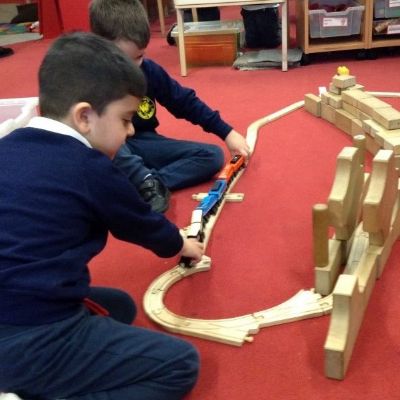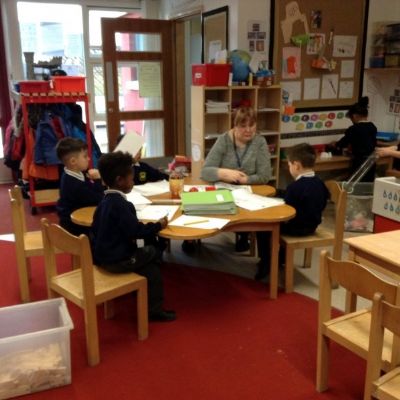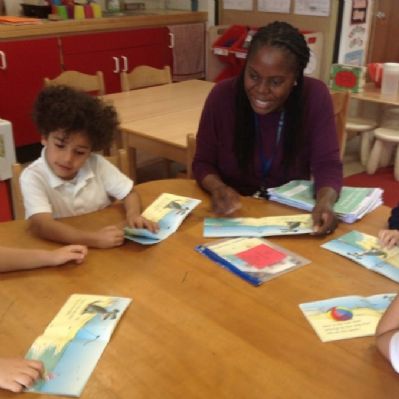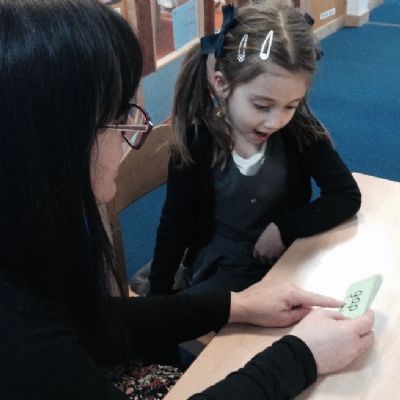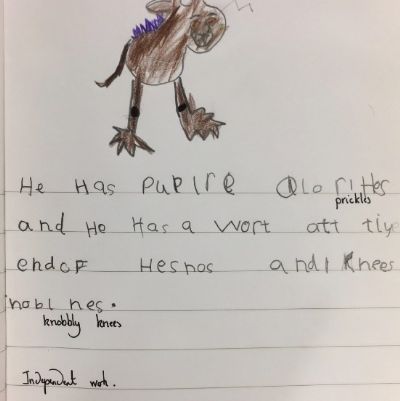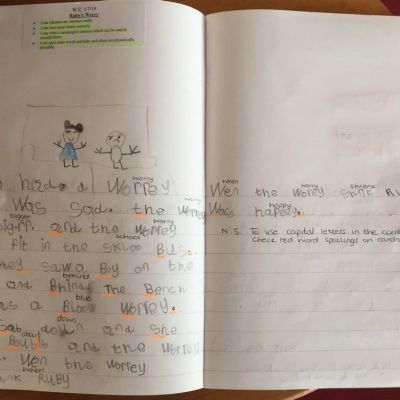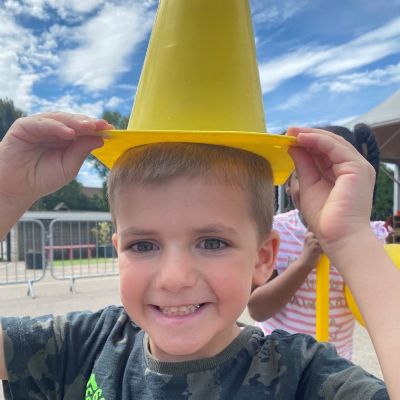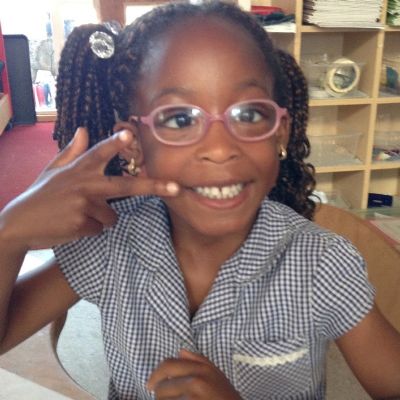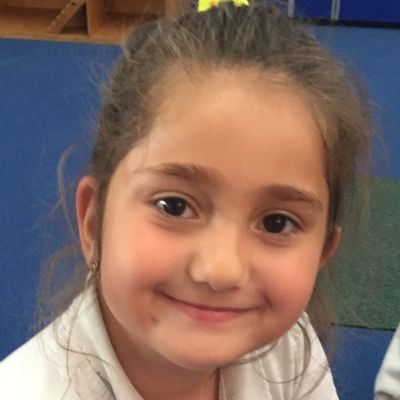Enfield Good Practice Network - EYFS
Early Years at Wilbury
Early Years at Wilbury is part of the ‘Enfield Schools Good Practice Network’. This aims to enable excellent practice to be shared between schools to improve provision across the borough. Particular areas of excellence identified at Wilbury are enabling environments, outdoor learning and phonics. See below for information about what we do, and training opportunities offered. All visits and CPD are free to schools.
About us
At Wilbury we have a large early years department – over 250 children aged from 2 years to 5. We are committed to giving children the best possible start to their education. The aim is for a high quality, consistent ‘seamless’ and progressive provision from two year olds to Reception – ‘seamless’ in that the same early years principles, ethos and practice run throughout. The approach taken has been carefully developed as a result of research and experience. We have very high expectations, and encourage a sense of urgency throughout.
We have a balanced / hybrid approach – our curriculum is taught through early years best practice – learning through play, enabling environments, outdoor learning, following children’s interests and teaching though interactions, combined with motivating adult led activities, core experiences (for example, gardening and cooking), and daily targeted phonics sessions. The balance shifts as children move through the year groups. Our provision is developmentally appropriate, and children are taught the skills they need throughout. Expectations are stepped up at each stage, and we build on previous learning, ensuring progress.
Our curriculum is informed by the EYFS and Development Matters, along with the children’s interests and developmental needs, and the context of our school. Our curriculum is designed to give children the foundational knowledge needed to prepare them for year 1 and beyond. This is taught mainly through carefully chosen texts, the experiences we provide, and our continuous provision and learning environments.
Language development and reading are central to everything we do. More information on this below.
Early Years principles
Enabling environments
Running all the way through our early years is the principle of learning through play, the best and most meaningful way for young children to learn. We offer lots of open ended exploratory experiences, and the structure of our day includes periods of uninterrupted play, so that children can get deeply involved in their learning. Learning environments, and the way children use them, are a particular strength. All classrooms and outdoor areas are organised so that high quality, open-ended resources are accessible to the children. They can choose what they play and learn with, and learn to tidy up after themselves from age two – ‘choose it, use it, put it away’ is our mantra! As the children are making their own choices, the level of involvement is greater and the learning deeper. Through their familiarity with the environments and the autonomy they are allowed, children also develop confidence and independence.
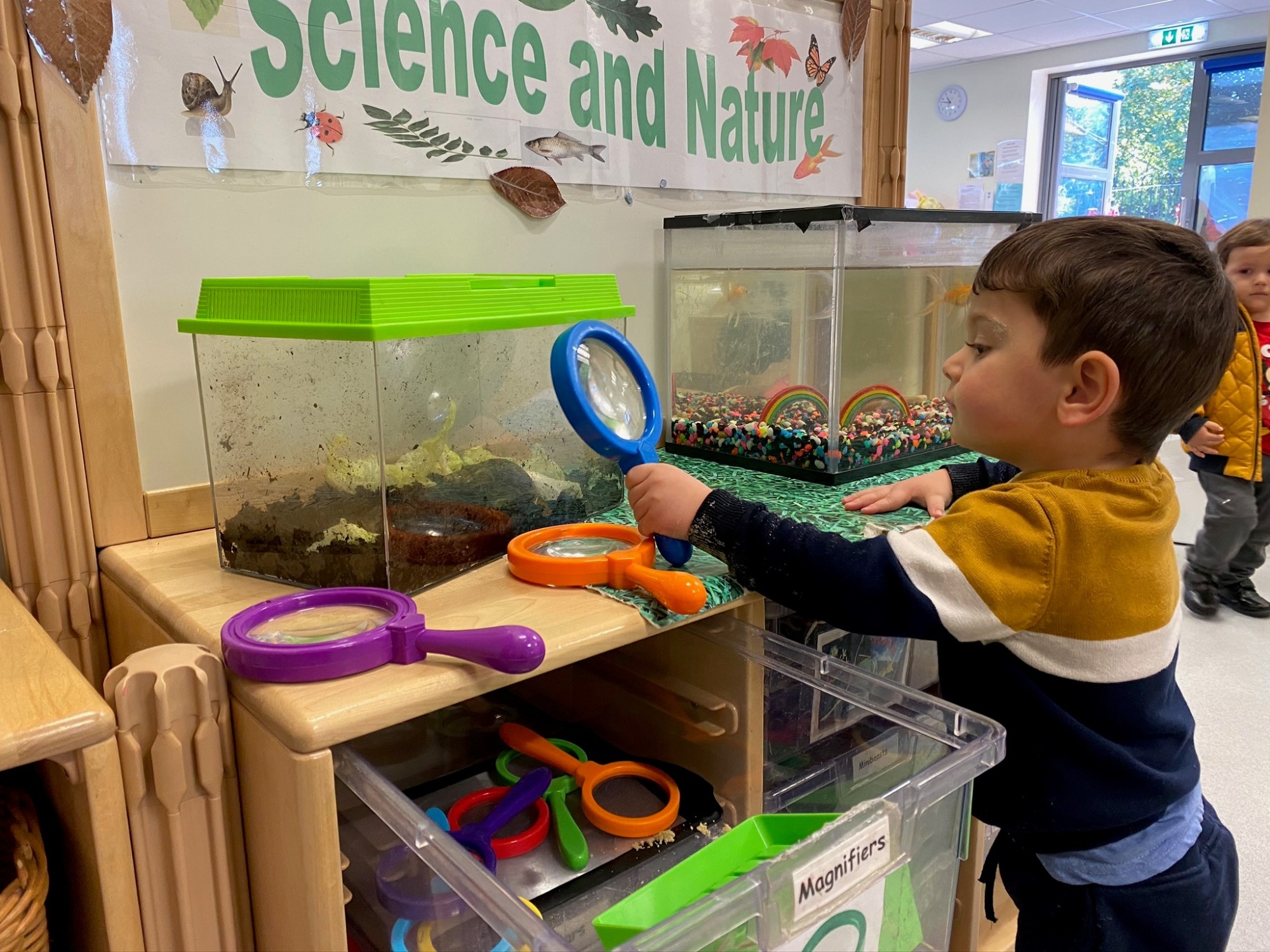
Outdoor learning
We place a strong emphasis on the importance of outdoor learning throughout our provision. Many of our children have limited opportunities to play and learn outside at home, so we give them as many as we can whilst they are at school. Outdoor learning has many benefits, including contributing to health and wellbeing, and in developing the ‘whole child’. Children are often more confident outside, and outdoor play offers great opportunities for experiencing the natural world, and active learning and exploration, as well as elements of risk and challenge. We have exceptional outdoor learning environments and a system of ‘free-flow’ whereby children can choose to play and learn inside or outside for a large part of the session.
Interactions and the characteristics of effective learning
Much of our teaching is through interactions. Adults observe the children closely, and join in (‘intervene’) sensitively with their play, to extend their language and thinking, and develop their knowledge and skills. We support the ‘Characteristics of effective learning’ (‘playing and exploring’, ‘active learning’ and ‘creating and thinking critically’) developing confident, resilient, independent learners throughout the early years. We encourage good attitudes to learning, like curiosity, concentration and willingness to ‘have a go’, in everything we do.
Seamless provision
All these aspects run through the early years at Wilbury, so that children become familiar and confident with this way of learning, and move seamlessly from one year group to the next. They are ready for the next stage, settle in quickly and ‘hit the ground running’.
Balance and progression
Language development
A key feature throughout our provision is developing children’s language and vocabulary. We do this through the stories we read, our interactions with children, and our language and communication rich environment. We provide lots of opportunities to develop children’s familiarity with stories, songs and rhymes throughout early years, from TWOs to Reception. Everything we do is designed to promote language development – our learning environments, the structure of our day, the way focus activities and interventions are organised, and the high quality training we provide for all our staff.
Reading is central to our curriculum. Understanding and enjoyment of books is supported through daily storytime and sharing books in all year groups. We use ‘core books’ in Nursery and ‘The Power of Reading’ programme in Reception. This programme immerses children in high quality books, involves lots of talk and role play, and has been highly successful in raising engagement and attainment in reading and writing. We develop children’s writing through spoken language and comprehension of stories.
Balance
Children play and learn in the enabling environment, accessing their own resources and extending their own learning, while the adult gets on with the focus activity undisturbed.
Click here to see a video of our balanced approach in action – adult working on a focus activity while other children play and learn independently
Phonics
Phonics teaching is based around ‘letters and sounds’ in Nursery. Read Write Inc sounds lessons are introduced in the Summer Term in Nursery, and we move on to the formal ‘Read Write Inc’ programme in Reception. This is taught systematically with daily sessions, in carefully levelled groups, so that teaching can be targeted. Children are assessed and re-grouped every 6-8 weeks to ensure progression. Children who need extra help are given individual tuition. Staff are offered regular training and CPD, and the quality of teaching is excellent. Phonics results in reception are exceptional and have significantly improved over the last five years:
• 52% of children met end of year expectations in 2017 rising to 86% in 2019
• In July 19 – 97% of children were just below expected+ – this shows the impact of 1:1 tuition – working with lowest 20%
Urgency – making the most of every moment
Our timetable ensures that interventions do not interrupt the early years element of our practice – 1:1 phonics happens during registration, and reading, speaking and phonics group interventions at lunchtime.
Impact
High expectations, enthusing children and our rigorous approach have led to significant improvements in writing in Reception. Below are typical examples of writing at the end of Reception, showing the improvement since 2016 …
2016 2019
Data
Year-on-year improvement in GLD, with the gap between school/LA and school/national closing steadily over the last five years
Marked improvement in phonics end of year expectations in Reception – 52% meeting these in 2017 and 86% in 2019
Our aim …
for children to leave the EYFS as confident, happy, independent, resilient learners, emotionally and academically ready for Year one.
Our Good Practice Network offer
To book email schaloner@wilbury.enfield.sch.uk or office@wilbury.enfield.sch.uk or call the school office. No cost to schools.
- Generic package – Seamless provision – progression & balance. Includes early years best practice & phonics
• Visit to Wilbury – in person or virtual
• Return advisory visit to school
- Supplementary support
• Enabling environments (inside and outside)
• Early years leadership
• Phonics
• Outdoor learning
• Classroom practice
Testimonials – what our visitors say
“We really enjoyed the visit to Wilbury. We really benefited from looking at the enabling environments inside and outside at Wilbury. It was clear that their approach to EYFS consistent across all the classes and age ranges. We came back thinking about how we can develop our own environment and practice. Sophie was inspiring with her high expectations and refreshingly realistic about the challenges we face in EY with time and resources. Sophie was so welcoming to us and answered any questions that we had. ” (St Edmunds)
